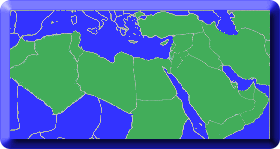
Topics in Middle Eastern and North African Economies
Document Type
Article
Publication Date
5-1-2016
Journal Title
Topics in Middle Eastern and North African Economies
Volume
18
Issue
1
Publisher
Middle East Economic Association and Loyola University Chicago
Abstract
Inflation Targeting (IT) is a monetary policy in which keeping inflation as close as to the target level using policy tools is the main focus for many central banks. However, purely targeting inflation has the potential to reveal the drawback of the trade-off between inflation and output, leaving out the possibility of perfectly anticipated inflation where there is no trade-off. IT policy is relatively more difficult for emerging market economies compared to developed countries due to the potential fragilities emerging from the large amount of fluctuations in the portfolio investments. High current account deficits, fiscal dominance, lack of credibility, imperfections in many goods markets, volatility in commodity prices are some of the factors that contribute to the fragilities in the economic stabilities and render the economy more open to external shocks. Overall, lack of institutionalism in emerging economies may hamper central bank independence, which is essential for a fully-functioning IT regime. Under such conditions, giving priority to IT is a difficult path to follow together with the impacts of the developments in other economic variables at different horizons. Hence, decomposing the weights of the economic fundamentals in determining the monetary policy will provide information about devotion to IT as the policy rule. Considering the domestic environment and the externalities, this paper aims (i) to investigate the monetary policy rule of the Central Bank of the Republic of Turkey under a structural VAR (vector auto-regression) model, (ii) to structurally decompose the variation of the determinants of the monetary policy, and (iii) examine the determinants and the decompositions for a set of inflation targeting emerging market economies. The IT (explicit or implicit) emerging economies to make comparison are as follows: Brazil, Chile, Mexico, Czech Republic, Hungary, Poland, Indonesia, South Korea, South Africa, and Israel. SVAR methodology is used for time series analysis for Turkey whereas GMM based panel VAR is employed for the panel of 11 emerging countries. Empirical findings suggest importance of institutional variables in monetary policy rules especially in the long run and that adopting IT and rise in credibility contributes to central banks of emerging economies by lowering interest rates.
ISSN
2334-282X
Recommended Citation
Aslanoğlu, Erhan and Deniz, Pinar, "Decomposing the determinants of interest rates in Turkey and selected emerging markets implementing inflation targeting policies". Topics in Middle Eastern and North African Economies, electronic journal, 18, 1, Middle East Economic Association and Loyola University Chicago, 2016, http://www.luc.edu/orgs/meea/
Creative Commons License

This work is licensed under a Creative Commons Attribution-Noncommercial-No Derivative Works 3.0 License.
Copyright Statement
© 2016 The Authors



Comments
Presentation of the articles in the Topics in Middle Eastern and North African Economies was made possible by a limited license granted to Loyola University Chicago and Middle East Economics Association from the authors who have retained all copyrights in the articles.